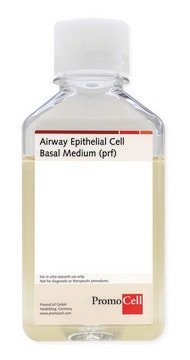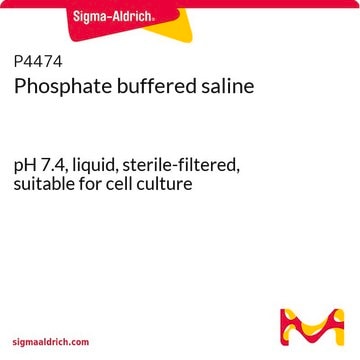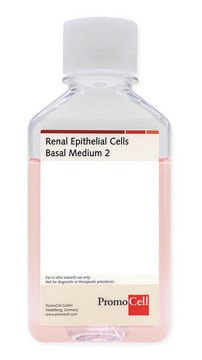502-05A
Human Bronchial Epithelial Cells: HBEpC, adult
Synonym(s):
HBEpC, HBEpC cells
About This Item
Recommended Products
biological source
human bronchi (normal surface epithelium)
Quality Level
packaging
pkg of 500,000 cells
manufacturer/tradename
Cell Applications, Inc
growth mode
Adherent
karyotype
2n = 46
morphology
epithelial
technique(s)
cell culture | mammalian: suitable
relevant disease(s)
asthma; autoimmune diseases; cardiovascular diseases
shipped in
dry ice
storage temp.
−196°C
Related Categories
General description
HBEpC provide an excellent model system to study all aspects of epithelial function and disease, particularly those related to airway viral infections, as well as tissue repair mechanisms, signaling changes and potential treatments relevant to lung injuries, mechanical and oxidative stress, inflammation, pulmonary diseases and smoking.
When grown on inserts and provided with the liquid/air interface, HBEpC can differentiate into a pseudostriated epithelium and serve as a more physiological 3D tissue model for in vitro studies.
Cell Line Origin
Application
Components
Preparation Note
- 1st passage, >500,000 cells in Cell Basal Medium containing 10% FBS & 10% DMSO
- Can be cultured at least 16 doublings
Subculture Routine
Disclaimer
Storage Class Code
10 - Combustible liquids
WGK
WGK 3
Flash Point(F)
Not applicable
Flash Point(C)
Not applicable
Certificates of Analysis (COA)
Search for Certificates of Analysis (COA) by entering the products Lot/Batch Number. Lot and Batch Numbers can be found on a product’s label following the words ‘Lot’ or ‘Batch’.
Already Own This Product?
Find documentation for the products that you have recently purchased in the Document Library.
Protocols
Technical information for working with human bronchial epithelial cell line including thawing, subculturing and cryopreservation.
Our team of scientists has experience in all areas of research including Life Science, Material Science, Chemical Synthesis, Chromatography, Analytical and many others.
Contact Technical Service


